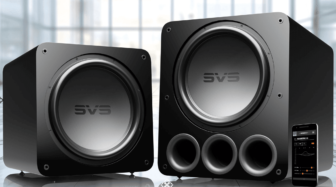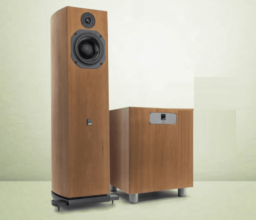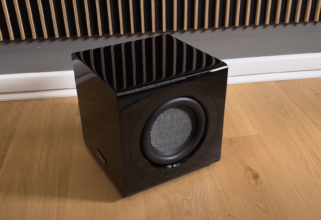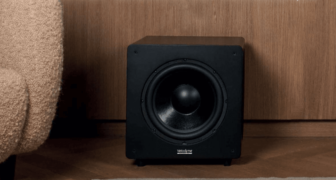REL NO.31 Review
Subwoofers, particularly large and pricey models like the REL No. 31, present unique challenges in terms of placement and evaluation. Unlike smaller audio components, the sheer size and weight of these subwoofers demand careful consideration of their placement to ensure optimal performance.
Testing subwoofers can be tricky. You might take them outside, measure their output using ground plane methods, and analyze distortion data. While this data can be insightful, it might not fully reflect how the subwoofers will perform in an indoor setting. The acoustics of a room and personal preferences play significant roles, making the setup of subwoofers as much an art as a science.
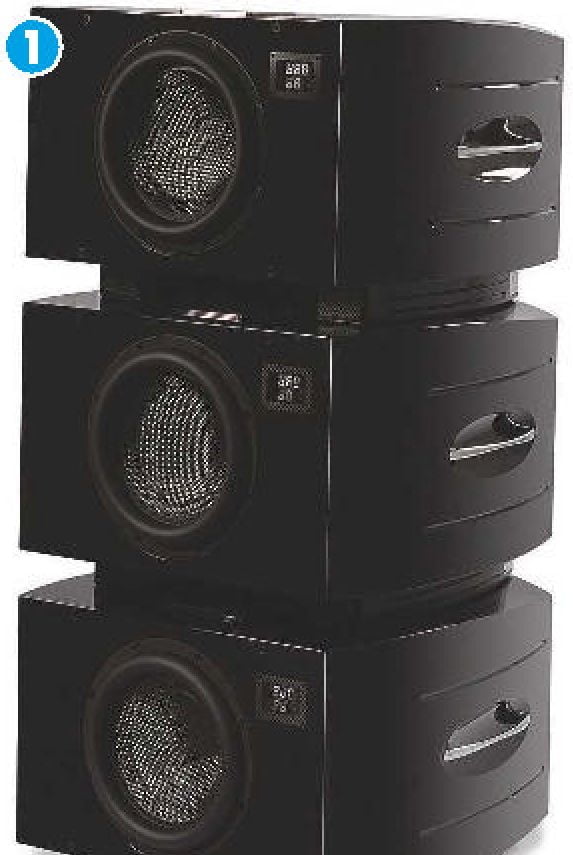
In my role as a professional audio calibrator, I’ve fine-tuned countless subwoofers. This review of the REL No. 31 is particularly intriguing because of its substantial size and the limited placement options in my setup. Despite these constraints, the REL No. 31s delivered the best musical bass and seamless integration with my speakers that I’ve ever experienced in this room.
Design and Features
The REL No. 31 is REL’s latest flagship model, featuring a 12-inch carbon fiber driver powered by a 900-watt Class D amplifier. Its sealed cabinet design is unique, with a teardrop shape that looks elegant and non-traditional. Even the grille design, which I usually avoid, enhances its aesthetic appeal.
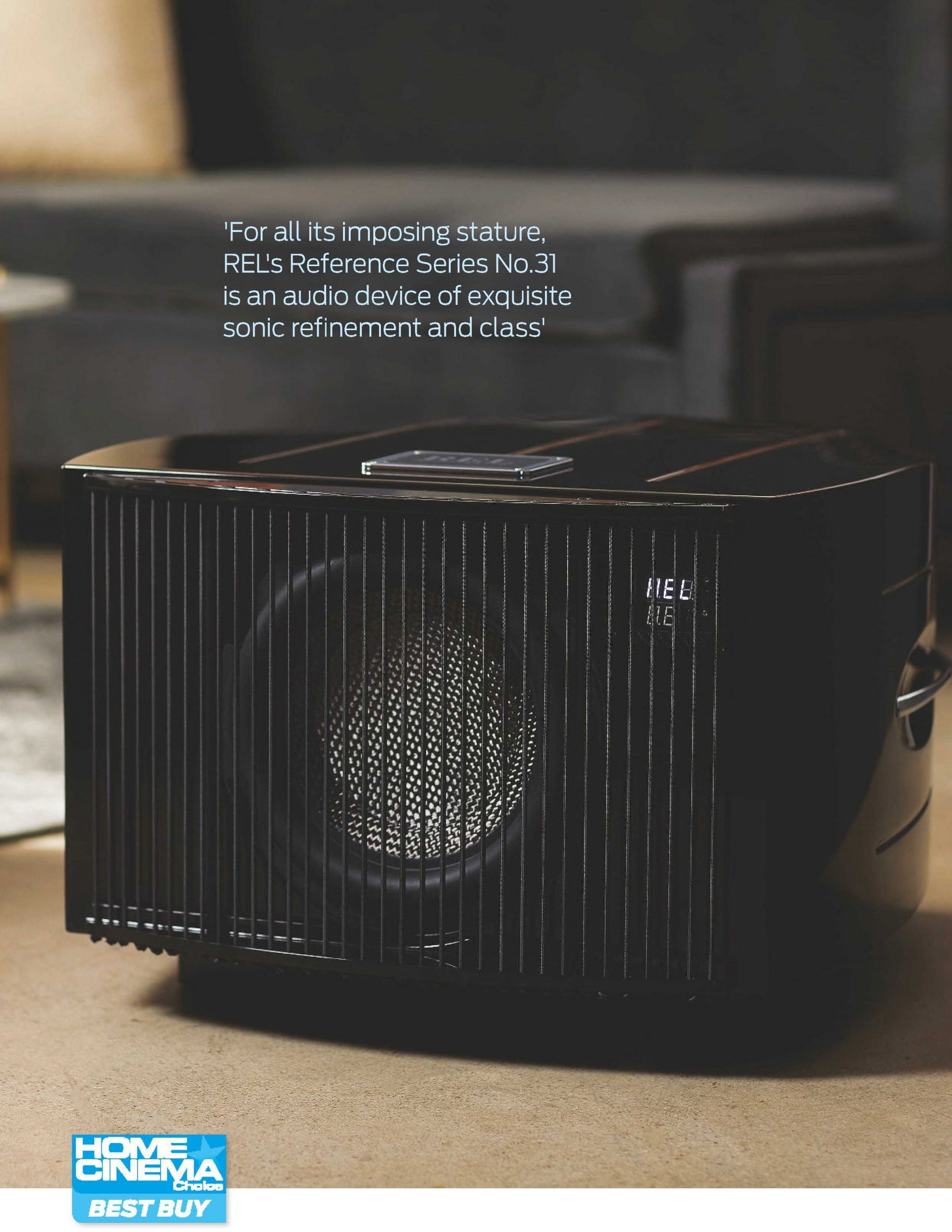
The build quality is exceptional, with thoughtful touches like curved handles, grooves on the top, a sophisticated footer system, and a carbon fiber plaque. These design elements may seem superfluous to some, but they contribute to the pride of ownership and overall user experience.
These subwoofers are large, so it’s essential to measure your space before purchasing. However, their performance justifies their size. The rear panel features various connection options but lacks traditional controls. Instead, the No. 31s come with a heavy-duty carbon remote control that allows you to adjust settings from your listening position. This remote control system is vastly superior to manual adjustments and is on par with modern app-based controls, offering convenience and precision.
Performance and Setup
In my tests, I used the dual REL No. 31s exclusively in a two-channel hi-fi setup, connected via a high-level connection using REL’s Baseline Blue cable. I moved them in and out of the system multiple times to evaluate their performance across different configurations.
Each time I added the No. 31s, the overall system performance improved significantly. Proper subwoofer placement and setup are crucial, and I had assistance from REL’s Rob Hunt for this task. We initially set them up in a traditional hi-fi configuration, crossing them over at around 30Hz to fill in the deepest bass frequencies. This setup provided a transparent bass integration, where it was hard to tell where the subwoofers’ output ended and the speakers’ began.
However, I prefer a more substantial bass presence. After experimenting, I settled on a crossover around 46Hz and increased the subwoofers’ volume. This adjustment provided a fuller, more impactful sound that greatly enhanced the listening experience across all genres of music.
Comparative Testing
I tested the REL No. 31s with various systems, including my Mission 770 speakers paired with different amplifiers. Each time, the subwoofers not only extended the bass but also improved the overall scale, solidity, and immersion of the sound.
With my high-power tube amplifier and the Sonus Faber Serafino speakers, the No. 31s made a profound difference. The soundstage expanded, and every instrument, including vocals, became more solid and precise. This enhancement allowed the system to play louder without any stress or distortion, providing a smoother, more enjoyable listening experience.
When testing with a more powerful McIntosh MA352 amplifier, I expected the impact of the No. 31s to be less significant. However, the opposite was true. The improved integration between the subwoofers and speakers created an even more impressive sound, demonstrating the subwoofers’ ability to enhance high-end systems.
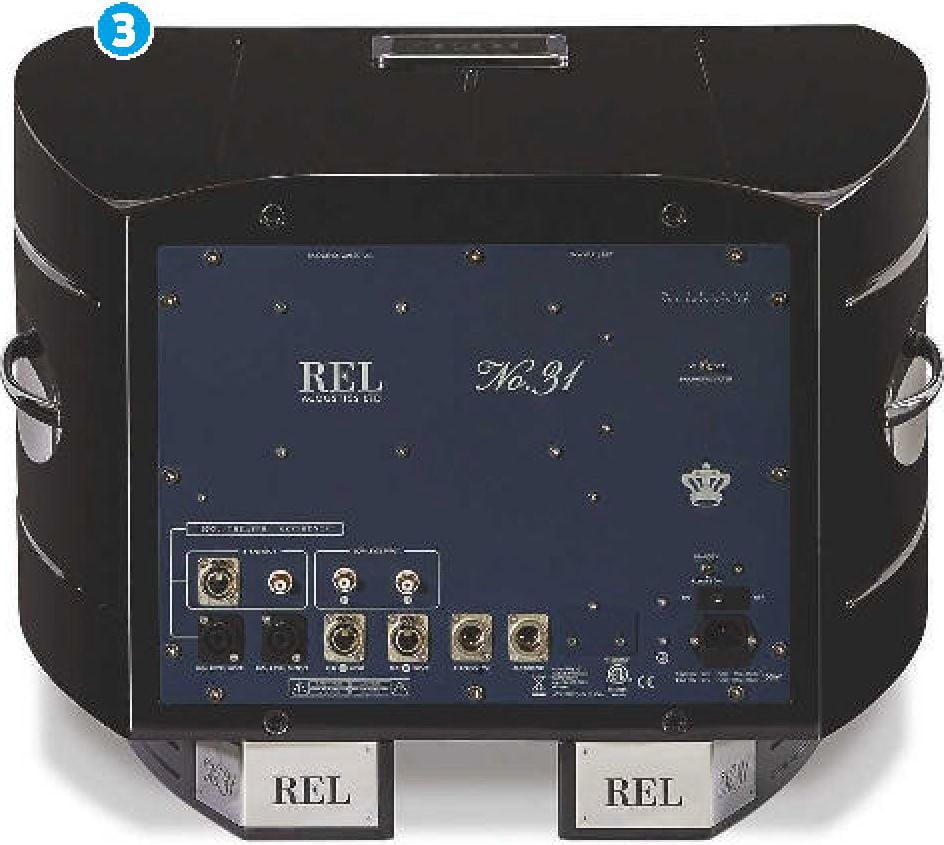
Av info
| PRODUCT | High-end’12in/900W sealed subwoofer |
| Position | Below only the 15in Reference Series No.32 |
| PEERS | B&W DB1D; Perlisten D212s |
| WEBSITE | www.rel.net |
SPECIFICATIONS
| DRIVERS: | 1 x 12in CarbonGlas long-throw woofer |
| ENCLOSURE: | Sealed, stackable (with kit) |
| ONBOARD POWER (CLAIMED): | 900W Class D amp |
| FREQUENCY RESPONSE (CLAIMED): | 17Hz-200Hz |
| REMOTE CONTROL: | Yes, premium bespoke design |
| DIMENSIONS: | 435(h) x 638(w) x 720(d)mm |
| WEIGHT: | 52kg |
| FEATURES: | Stereo/LFE line-level on both unbalanced RCA and balanced XLR; XLR LFE and XLR line-level outputs; stereo high-level Neutrik Speakon input and outputs; 0/180 degree phase; two-frequency manual parametric EQ; removable string grilles; front-facing LED segment display; all-analogue filter network |
Verdict
The REL No. 31 subwoofers have left a lasting impression on me. Their ability to blend seamlessly with various speakers while providing powerful, detailed bass is unmatched. They are large and expensive, but their performance justifies the investment. These subwoofers are ideal for anyone looking to enhance their hi-fi system’s bass performance and overall sound quality.
In summary, the REL No. 31 subwoofers are an exceptional addition to any high-end audio setup, offering unparalleled musical bass, integration, and user experience. Despite their size and price, they deliver a level of performance that is hard to beat. If you are serious about your audio system, the REL No. 31s are worth every penny.
When you purchase through links on our site, I may earn an affiliate commission. Here’s how it works.
REL Acoustics No.31 Overview
Hi there, John Hunter with REL here, and we are here to take you through the No.31. Now, where this resides within the REL ...






